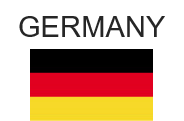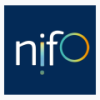The table below aims at gathering the administrative and governmental bodies of Germany, which are responsible for digital public administration policies and interoperability policies.

National
The responsibility for Germany's eGovernment policy lies with the Federal Ministry of the Interior and Community. It is also the main body coordinating the combined implementation efforts of all federal ministries and agencies, in order to provide a modern IT infrastructure at national level. It does not coordinate the IT implementation at federal State or community level.
|
Nancy Faeser Federal Minister of the Interior and Community
Source: http://www.bmi.bund.de/ |
The Office of the Federal Government Commissioner for Information Technology
as established on 1 January 2008, in line with the guidelines of the Federal IT-Steering Strategy. In accordance with the Cabinet’s decision of 5 December 2007, the Commissioner is responsible for the following activities:
-
Elaboration of the federal general IT strategy, eGovernment and IT security strategy;
-
Control the provision of the Federal IT security management;
-
Development of the federal IT architecture, standards and methods; and
-
Control the provision of central IT infrastructure of the federal government.
Apart from establishing this Office, all government departments have appointed a Chief Information Officer (CIO). The CIOs of all government departments form the CIO Board, which is the central decision-making body for IT-related laws and regulations in the federal public administration at the Ministry level. The Commissioner chairs the CIO Board and is the federal representative in the IT Planning Council, which is responsible for steering and coordinating cross-disciplinary eGovernment projects involving both the Federation and the federal States.
|
Dr. Markus Richter State Secretary in the Federal Ministry of the Interior Federal Government Commissioner for Information Technology
Source: https://www.cio.bund.de |
The Federal Government Commissioner for Information Technology chairs the IT Council. The IT Council is the central strategic body for overarching digitalisation issues. Its members are responsible for administrative digitalisation and IT policies in all federal Ministries.
The main task of the IT Council is the strategic management of IT and administrative digitalisation. If necessary, the IT Council acts as an escalation authority.
The Directorate-General for Digital Society and Information Technology deals with the socio-political questions of the digital revolution. This includes responsibility for the Berlin Declaration on Digital Society and value-based Digital Government.
The Federal Academy of Public Administration (BAköV) is also part of Directorate-General DG. BaköV offers training courses tailored to staff needs so that federal employees can maintain and expand their professional knowledge and (digital) skills. The German federal administration faces four central challenges in order to remain resilient and capable in the long term. These are: (i) demographic change; (ii) increasing employer competition on the labour market; (iii) technological change, and (iv) transformation in sustainability und climate neutrality. To address these challenges BAköV established, inter alia, its new Digital Academy.
The Digital Academy supports the federal administration with training courses to master the digital transformation. The Digital Academy is an important lever for the German Digital Strategy. The Academy is designed to connect the federal administration internally and train technical skills, methods and cultural competencies through a strong network. The Academy follows the best practice of hybrid learning by including both a physical campus and an online platform that offers courses, webinars, lectures, training and coaching. These mixed methods are intended to maximise accessibility and scalability. Furthermore, the Federal Academy offers a lot of trainings and networking activities regarding information technology, cyber security, data protection, project management, digital accessibility and digital skills in sustainability like Green-IT. Within these issues the academy established modern training paths for different levels of skill requirements and different target groups. The academy offers a comprehensive digital training for the Federal administration.
|
Pia Karger Director General for Digital Society and Information Technology
Source: http://www.bmi.bund.de/ |
Since June 2020, the competence for the digital transformation of Germany’s administration is pooled in a separate Directorate-General for the ‘Digital Administration and Management of the Online Access Act’ within the Federal Ministry of the Interior and Community. The Directorate-General for Digital Administration is responsible for required legal changes, digital identities, digital infrastructure and online services as well as modernization of the registries. Thus it shortens decision-making channels and facilitates coordination. It is also responsible for administrative organisation and modernisation.
|
Ernst Bürger Director General for Digital Administration and Management of the Online Access Act
Source: http://www.bmi.bund.de. |
Initialised by the representatives of German administrative districts and municipalities, OZG-Kommunal should support local authorities during the implementation of the German Act on the Improvement of Online Access to Administration Services. OZG-Kommunal is a coordinative programme, which is intended to promote the exchange of information among eGovernment experts and across different political levels.
The IT Standards Coordination Office (Koordinierungsstelle für IT-Standards - KoSIT) has the task of coordinating the development and operation of IT standards for data exchange in the public administration.
KoSIT supports the IT Planning Council in its task of elaborating independent and interdisciplinary IT interoperability and IT security standards, as well as managing eGovernment projects across federal and State borders.
The German Federal Office of Administration (Bundesverwaltungsamt - BVA) is Germany's central public service agency. It performs more than 100 different tasks for all federal ministries. This includes the development of some of the country’s eGovernment infrastructure components, such as the government portal Bund.de, or the content management system “Government Site Builder”.
Government Ministries and agencies are responsible for the implementation of their departmental ICT projects. The Federal Ministry of the Interior coordinates the combined implementation efforts of all federal Ministries and agencies.
The Federal Office for Information Security (Bundesamt für Sicherheit in der Informationstechnik, BSI) is the central IT security service provider for the German government. One of its key tasks is to provide support to federal authorities on IT security.
|
Arne Schönbohm President of the Federal Office for Information Security (BSI)
Source: https://www.bsi.bund.de/ |
To ensure digital sovereignty, an Agency for Innovation in CyberSecurity (Agentur für Innovation in der Cybersicherheit GmbH) was founded. The agency’s purpose is to award targeted contracts for ambitious research projects with high innovation potential in the field of cybersecurity and related key technologies to meet the needs of the State in the area of internal and external security. In particular, the agency will support innovative projects which are characterised by radical technological novelty, and which can therefore have a market-changing effect.
The Federal Agency for Disruptive Innovation (Agentur für Sprunginnovationen) was founded in Leipzig on 16 December 2019. The founding was overseen by a commission made up of members from science, business and politics on behalf of the Federal Ministry of Research and the Federal Ministry of Economics.
The agency is intended to be a flexible and rapid State-funding instrument. With it, the Federal Ministry of Education and Research (BMBF) and the Federal Ministry for Economic Affairs and Climate Action (BMWK) want to support and accelerate the breakthrough of highly innovative ideas into the market. The agency's primary goal is to discover and further develop research ideas that have the potential to become leap innovations. Among these projects to be funded in the future is the establishment of new subsidiaries, which in turn create new ventures, and thus jobs, in Germany.
All of the federal States (länder) are currently setting their own eGovernment strategies. As a result of these strategies, nearly all local authorities have an Internet presence and over 80% of local authorities are already providing relevant online services. Furthermore, a large number of local authorities in Germany offer central access to their online services via highly efficient portals. The federal Länder and local authorities are working in parallel to further expand their own eGovernment services.
The Conference of Minister-Presidents and the Conferences of Specialised Ministers are bodies in which the federal States cooperate in their own spheres of responsibility. The federal States use these conferences to agree on proceedings in matters of joint interest, develop their position in relation to the federal government and also seek mutually agreed solutions with the federal government.
The IT Planning Council (IT-Planungsrat) is an important body which brings together the Federal Government Commissioner for Information Technology (the responsible State Secretary at federal level), the State Secretaries responsible for IT (CIOs at State level), the Federal Commissioner for Data Protection and Freedom of Information and representatives of the national associations of local authorities. The IT Planning Council is responsible for steering and coordinating cross-disciplinary eGovernment projects involving both the Federation and the States (Länder). According to Article 91c of the German Basic Law, the Council is tasked with coordinating the cooperation between the Federation (Bund) and the States in the field of IT; decisions on IT interoperability and security standards; the steering of eGovernment projects; and the planning and implementation of the core network infrastructure according to the Law on the connection of the IT networks of the Federation and the States.
In carrying out its tasks in accordance with Article 91c of the Basic Law and Section 1 (1) of the State Treaty on IT, the IT Planning Council is assisted operationally by the FITKO (Föderale IT-Kooperationen). This public institution, which is jointly sponsored by the 16 federal States and the federal government, consolidates the existing organisational structures as well as the personnel and financial resources of the IT Planning Council. The FITKO’s tasks also include developing and implementing a federal digital strategy and a federal IT architecture, promoting joint IT solutions, administering the budget for digital technology and creating a network to connect all relevant stakeholders.
Individual federal States and municipalities are responsible for the implementation of their own eGovernment projects. They are supported by regional IT companies. These companies are often partly owned by the federal State or collectively by a union of municipalities.

